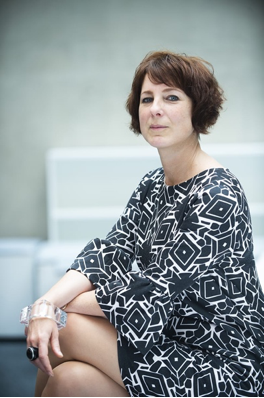Open at Heart: An Interview with AACE Keynote Speaker Melissa Highton

Tomorrow is not only election day, but also the first day of the first ever AACE Innovate Learning Summit (former E-Learn Conference). I have been attending E-Learn conferences for the over a decade, and while I am really sad that we will not be meeting in San Diego in person this year, I look forward to the digital format. One reason that makes AACE conferences always worthwhile are high quality keynotes and invited speakers. This year, I am particularly excited to attend Melissa Highton’s talk. For AACE Review she answered a few questions about her career in EdTech.
You are an expert on Open Educational Resources and a successful advocate for creative commons at your institution. Can you give a few examples of current initiatives and the strategies you use to promote OER at the University of Edinburgh?
We are very committed to open educational resources at University of Edinburgh. I am keen that my teams try to make it as easy as possible for colleagues to choose creative commons licences for their materials. We remove barriers by putting policy, support and training in place. We also ensure that our systems such as our learning platforms and media asset management includes specific tools for choosing and attributing licences so that we can ensure that when materials are used across multiple platforms we know what the options for re-use and adaptation really are.
I aim to help colleagues and students to see linkages between practices in open knowledge, open education, open research, open publication, open formats, open data and opensource technologies. I make sure that the learning technologists at Edinburgh participate in projects and activities which have open licencing at their heart such as our partnership with Wikimedia and our support for community developments in Drupal, WordPress and uPortal.
We also ensure that we re-use and adapt content from other places if we can. Here is one example which is the promotional trailer for our new MOOC on food security. The whole video is made using creative commons licenced materials from outwith the University.
How do students at your university benefit from open learning?
Students at University of Edinburgh have a huge range of courses and resources to choose from. They have access to all our MOOC content and to collections of learning materials to develop their academic and digital skills. We offer a rich programme of resources from our libraries and museum collections and we encourage students to create and share their work in our makerspaces, blogs and media platforms. I also encourage them to become Wikipedia editors and contribute to the expansion of open knowledge. Over the last few years we have trained 2000 University of Edinburgh students and staff to become Wikipedia editors and we have embedded Wikimedia activities into the curriculum. We published a book of case studies last year: https://www.ed.ac.uk/information-services/about/news/2020/using-wikipedia-in-education
What role does informal learning play in your life?
I read widely in relation to my job role and I feel that I learn an enormous amount from involvement with networks of peers and colleagues. I engage in reflective practice through my certifications and fellowships with the Association of Learning Technologists (ALT) Higher Education Academy (HEA) and the Chartered Institute of Library and Information Professionals (CILIP). I also engage with reflective praxis through ongoing research, I have just completed a professional doctorate in diversity and digital leadership.
How has your professional and personal life changed during the COVID-19 pandemic?
The most striking thing of course is that we are all working from home now and for the forseeable future. The University of Edinburgh learning technology teams did an amazing job of moving back to their homes, setting up, running their services and scaling up their services in response to a total shift to hybrid learning and huge increase in demand. I am in awe of their expertise and agility.
You have been blogging for over a decade. Looking back, how has keeping a blog influenced your professional path?
I use my blog in several ways. It helps me to structure my thoughts and to make linkages between different areas of my work. I use it to collect together links and resources and to look back on how my thinking has changed. It is my place to go when an idea comes around again. https://thinking.is.ed.ac.uk/melissa/
I blog openly and enjoy the idea that someone other than me may be reading it. It has certainly been useful for looking back at my practice when I need to compile a CPD portfolio or to check ‘didn’t we do that already?’. Working in learning technology there are many ideas which get sidelined, recycled, revisited and retired, only to become flavour of the month again a few years later. Working in learning technology is certainly never boring. I consider myself to be very lucky to have had leadership jobs in amazing universities and to have had the chance to lead the development of digital innovation in higher education.
About

Photo credit: Lesley Martin
Melissa Highton is Assistant Principal and Director of Learning, Teaching and Web Services at University of Edinburgh in Scotland. She is an inspirational digital leader responsible for the University’s strategic priorities in digital and distance learning on global platforms. Her teams support blended learning, virtual learning environments, technology enhanced hybrid learning spaces, the digital student experience and use of the web for outreach and engagement. She has particular interests in digital skills, 21st century curricula, open educational resources (OER), research led teaching and online media. Melissa is strategic lead in the University for a wide range of technologies and support for innovative learning and teaching, including blended learning tools, bespoke web development, online video, lecture recording, VLEs and partnerships with platforms such as Coursera, Edx, FutureLearn and Wikimedia. Her teams support a range of online provision including online Masters programmes, CPD and Massive Open Online Courses (MOOCs). The Learning, Teaching and Web Directorate at University of Edinburgh is one of the most successful and comprehensive learning technology groups in the UK, with teams of multi-professional staff, student interns and expert consultants. At this conference she will talk about the work University of Edinburgh does in designing and delivering online learning for diverse audiences and international impact. You can follow Melissa on Twitter @honeybhighton in advance of the conference.

Stephen Adu Gyamfi
December 16, 2020 at 11:29 am
Interesting presentation. It’s been very useful and relevant.